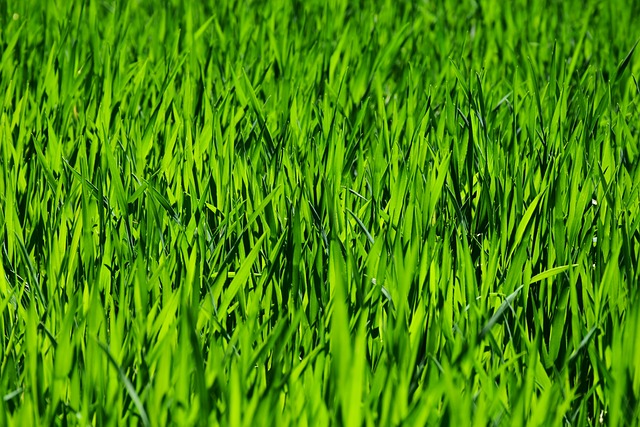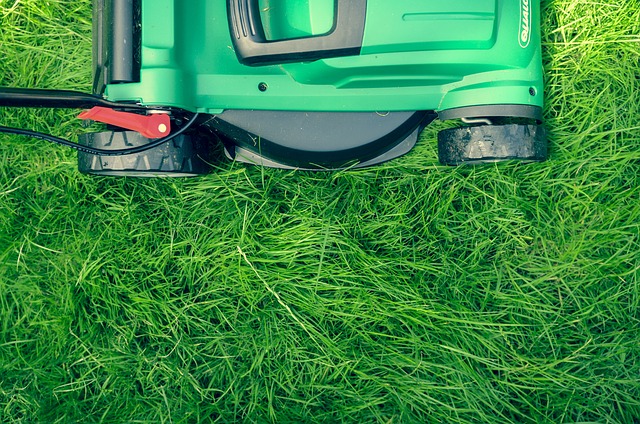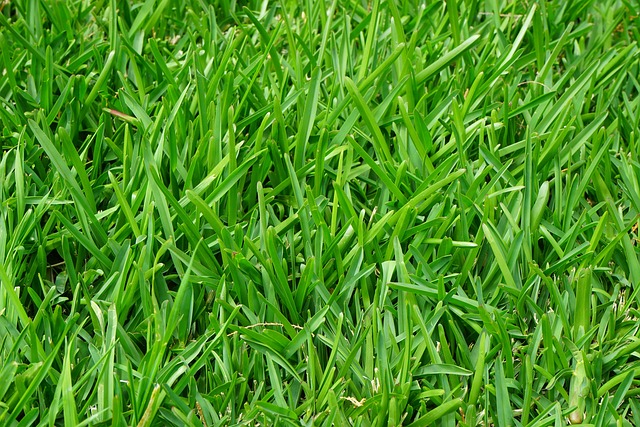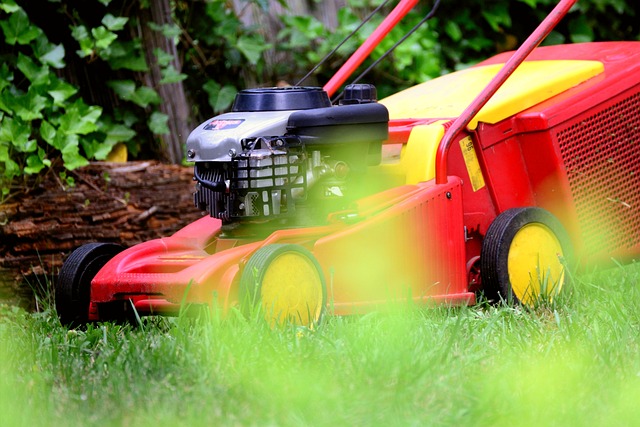Keeping your lawn in pristine condition is a testament to the charm of your home. This article delves into the advantages of professional residential lawn mowing services, which extend beyond mere aesthetic appeals. From the meticulous choice of equipment to tailored maintenance schedules, we explore how these services can cater to various grass types and climates, enhancing overall lawn health. Additionally, we examine the eco-conscious practices that ensure a greener environment while also considering the cost-benefit implications of outsourcing this chore. By understanding the intricacies of lawn care and landscaping, homeowners can make informed decisions to maintain their outdoor spaces with precision and sustainability.
- Understanding the Benefits of Professional Residential Lawn Mowing Services
- Assessing the Tools and Equipment Required for Efficient Lawn Mowing
- The Importance of Regular Maintenance and Scheduling for Optimal Lawn Health
- Customizing Lawn Care Strategies to Suit Different Grass Types and Climates
- Eco-Friendly Practices in Residential Lawn Mowing for a Greener Environment
- Evaluating the Cost-Effectiveness and Time Savings of Outsourcing Lawn Mowing Services
Understanding the Benefits of Professional Residential Lawn Mowing Services

Engaging in regular lawn care through professional residential lawn mowing services offers numerous advantages for homeowners. Unlike DIY efforts, which may be sporadic and less precise, professionals utilize expertise and specialized equipment to deliver consistently manicured turf that enhances the aesthetic appeal of your property. A well-maintained lawn not only elevates curb appeal but also promotes a healthier and more resilient grass ecosystem. This is achieved by adhering to optimal mowing heights and frequencies, which are critical for grass growth patterns and can prevent the occurrence of weeds and disease. Moreover, these services often include additional lawn care practices such as aeration, fertilization, and pest control, ensuring your lawn receives comprehensive attention that sustains its vibrancy throughout the seasons. Incorporating landscaping elements into the mowing routine can further accentuate your outdoor space, creating a harmonious blend of form and function that adds to the overall value and enjoyment of your home. By entrusting your lawn’s upkeep to seasoned professionals, you are investing in an environment that is both welcoming and visually pleasing, with the added benefit of freeing up your own time for other priorities or leisure activities.
Assessing the Tools and Equipment Required for Efficient Lawn Mowing

When considering the provision of residential lawn mowing services, assessing the tools and equipment required for efficient and effective lawn care is paramount. A well-maintained fleet of mowers tailored to various lawn sizes ensures that each cut is precise and leaves the grass at an optimal height for growth, which in turn contributes to a thriving landscape. Mowing with sharp blades not only provides a cleaner finish but also encourages healthier regrowth by preventing the ragged edges that can invite disease. Beyond the mower itself, additional equipment such as edgers and trimmers play a crucial role in defining garden beds and achieving those clean, crisp lines that elevate lawn care from mere maintenance to a form of landscaping art.
Investing in reliable and durable equipment is a smart business move for any lawn mowing service. This includes not only the mowers but also the necessary accessories such as mulching kits, which recycle grass clippings to enrich the soil, and collection systems that keep work sites tidy and comply with local waste management regulations. Regular servicing and upkeep of this equipment ensure they operate at peak performance, reducing downtime and delivering consistent quality in service. Additionally, utilizing technology such as GPS route planning can optimize mowing patterns for efficiency and sustainability, further enhancing the professionalism of residential lawn care services.
The Importance of Regular Maintenance and Scheduling for Optimal Lawn Health

Regular lawn maintenance is a cornerstone of achieving a lush, vibrant lawn that stands out in any neighborhood. Consistent mowing, at least once every week during active growth periods, not only keeps your lawn neat and tidy but also encourages healthy grass development by mimicking natural grazing patterns. A well-maintained lawn is the foundation of effective landscaping, enhancing both the aesthetic appeal and property value. Mowing at the correct height, ideally removing no more than one-third of the grass blade at a time, allows for optimal root growth and nutrient distribution, ensuring a thick turf that can outcompete weeds.
Scheduling your residential lawn mowing services is equally crucial for maintaining a healthy landscape. Timely service not only keeps your lawn neat but also adapts to seasonal changes, ensuring that your grass receives the right care at the right time. For instance, during the transition from spring to summer, adjustments may be necessary to manage the rapid growth and prevent stress on the lawn. Similarly, in fall and early winter, mowing frequency can be reduced as growth slows. A reliable lawn care service will tailor their maintenance schedule to the unique climatic conditions of your region, ensuring that your lawn receives the best possible care throughout the year. This proactive approach to lawn maintenance not only contributes to the beauty and functionality of your outdoor space but also creates a more sustainable environment for both your grass and the ecosystem as a whole.
Customizing Lawn Care Strategies to Suit Different Grass Types and Climates

Lawn care and landscaping professionals recognize that a one-size-fits-all approach to mowing and maintaining lawns is ineffective, given the variety of grass types and climatic conditions across regions. To achieve optimal results, residential lawn mowing services customize their strategies to address the unique requirements of each lawn. For instance, cool-season grasses like Kentucky bluegrass and fescues thrive in temperate climates with ample moisture; they typically need more frequent mows during their active growth phase. In contrast, warm-season grasses such as Bermuda, St. Augustine, and Zoysia grass are better suited for the heat of the southern United States and require different mowing heights and frequencies, often higher cuts to encourage deeper root growth and withstand drier conditions.
Understanding the local climate is paramount in tailoring lawn care services. In areas prone to drought, water conservation techniques must be integrated into the landscaping plan, which may include xeriscaping or the use of drought-resistant grass varieties. Additionally, mowing patterns and timing can vary depending on grass type; for example, mowing tall fescue too short can lead to stress and disease susceptibility. Professionals in high-rainfall regions must adjust their mowing schedules to prevent fungal growth and ensure proper drainage. By adapting their lawn care strategies to the specific needs of different grass types and climates, residential lawn mowing services ensure that each lawn is maintained with precision and care, resulting in lush, healthy landscapes that stand up to the challenges of their environments.
Eco-Friendly Practices in Residential Lawn Mowing for a Greener Environment

Residential lawn mowing services are increasingly adopting eco-friendly practices to promote a greener environment. These sustainable approaches in lawn care and landscaping emphasize conservation, reduced emissions, and the preservation of natural resources. By utilizing electric or battery-operated mowers instead of gas-powered ones, these services significantly cut down on greenhouse gas emissions and air pollution. The switch to eco-friendly equipment is a testament to the industry’s commitment to environmental stewardship. Additionally, lawn care professionals are advocating for the implementation of xeriscaping principles, which involve landscaping designs that minimize water usage. This not only conserves water but also encourages the growth of native plants that require less maintenance and are better suited to local climates, thus fostering biodiversity.
Furthermore, responsible lawn mowing services prioritize the health of the soil by avoiding over-mowing and maintaining optimal grass height. This practice prevents soil compaction and allows for better root growth, nutrient absorption, and overall turf resilience. Composting grass clippings and leaves also contributes to soil fertility and reduces waste. By integrating these eco-conscious methods into residential lawn mowing, these services are playing a pivotal role in transforming landscapes into more sustainable and environmentally friendly spaces. The adoption of such practices underlines the importance of harmonizing human activities with environmental preservation efforts within the realm of lawn care and landscaping.
Evaluating the Cost-Effectiveness and Time Savings of Outsourcing Lawn Mowing Services

When considering the merits of outsourcing lawn mowing services as part of a comprehensive residential lawn care and landscaping regimen, homeowners often weigh the cost-effectiveness against the time savings such a service provides. Engaging with professional lawn mowing services can alleviate the burden of maintaining a well-manicured lawn, allowing residents to reclaim precious time otherwise spent on laborious yard work. These services typically offer scheduled visits tailored to the growth patterns of local grass species, ensuring consistent and precise cuts that promote a healthy, vibrant lawn. By analyzing the frequency of maintenance required for your specific climate and lawn type, you can accurately assess the potential savings in both time and resources when compared to the costs associated with owning or renting mowing equipment, as well as the personal time investment required for DIY upkeep.
Moreover, the cost of professional lawn mowing services encompasses not just the labor but also the expertise that comes with it. Lawn care and landscaping professionals are trained to perform their tasks efficiently, utilizing optimal mowing heights and patterns that are specific to different grass varieties. This expertise can lead to a more aesthetically pleasing lawn with fewer nutrient-depleting setbacks associated with improper mowing practices. Additionally, these services often include complementary tasks such as trimming edges, clearing debris, and removing yard waste, further enhancing the value proposition for homeowners who prioritize both time management and the visual appeal of their outdoor spaces.
